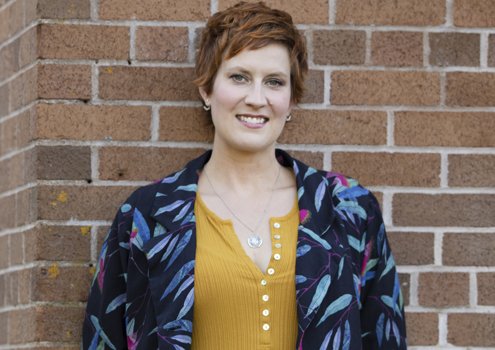Reading time: About 2 minutes
Kelly S Thompson believes that some writing problems are ‘Later You’ problems. This means that, when you’re writing, your only job is to write. Worrying about tone and character and plot and reviews are all concerns you can fret over later…
Kelly S. Thompson is an award-winning writer with an MFA and PhD in Creative Writing and works as a mentor in the MFA program at the University of King’s College, Halifax. She has made both the long and shortlists for the CBC Nonfiction prize and for a National Magazine Award, with writing in Chatelaine, Globe and Mail, and Macleans, and more. Her memoir, Girls Need Not Apply, was an instant bestseller and named a top 100 Books of 2019 by the Globe and Mail. Her second memoir, Still, I Cannot Save You, was also an instant bestseller and shortlisted for the Nova Scotia Book Awards Nonfiction Prize.
I was excited to talk to Kelly about how she approaches writing.
Q. Roughly how much time do you spend writing every day?
Usually about two to three hours but then I max out. But then, it depends on the day. Sometimes I have more energy, but sometimes it comes out in spurts. I have several chronic illnesses, so I have to make room for days where I don’t have the capacity to get much work done.
Q. What’s a simple activity or habit that makes you a better writer?
Planning. I treat my writing like a job, and I focus on creative work before everything else that comes in a day. It’s easy, in a world really focused on process, to put off something that doesn’t make us a ton of money, but this is my job and I have to dedicate myself to it. I also immerse myself in the time I’m writing about…music, perfumes…whatever lets me steep myself in the time.
Q. What interferes with your writing?
My health! I have rheumatoid arthritis, so some days, my hands don’t overly cooperate and I can’t type. So I have to be forgiving on those days and just let myself rest.
Q. How do you persuade yourself to sit down to write on days when you really, really DON’T feel like doing it?
I don’t! I let myself just walk away. It’s okay to take breaks.
Q. Is there a particular motto or saying that you’ve found helpful for writing?
I have a saying for my students that ‘This is a ‘Later You’ problem,” which essentially means, right now, your job is to write the story. LATER you can worry about tone and character and plot and metaphor and how the book will be received…but for now, just write.
Q. Which stage of the writing process do you enjoy the most: researching, writing or editing/rewriting and why?
Editing! Because this is where writing shines and is honed to something elevated. This is where I’m considering things beyond just plot. It’s where the magic happens!
Q. What’s one of the best books you’ve read (either fiction or non) in the last five years?
Melissa Febos wrote a book called Body Work: The Radical Power of Personal Narrative. It’s a call to action for writing our true stories and their capacity for change.
Q. What book are you reading right now?
Desmond Cole’s The Skin We’re In. Re-reading it, but it feels important in these times.
Q. What do you think is the biggest misperception that new writers have about the act of writing?
That some muse will come to you! There is an artistic practice for sure, but there’s also an element of giving your writing the time and attention to thrive, not waiting for some mystical book to write itself.


